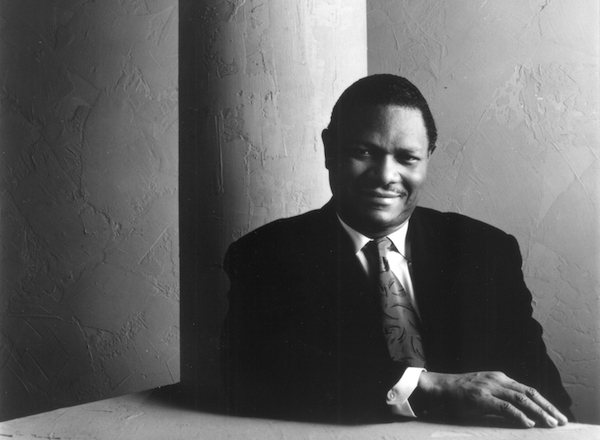Jan 13, 2026 2:09 PM
More Trump-Kennedy Center Cancellations
The fallout from the renaming of the John F. Kennedy Center for the Performing Arts to include President Donald…

McCoy Tyner (1938–2020)
(Photo: Marc Norberg/Blue Note/DownBeat Archives)Tenor saxophonist Joe Lovano—who toured with Tyner in 1999 and played on the live album Quartet alongside Tyner, bassist Christian McBride and drummer Jeff “Tain” Watts—also has great reverence for the pianist. “McCoy elevated every bandstand he played on,” Lovano said. “That was spiritual music that he played, every moment. And if you were lucky enough to be in a room with him, man, he brought you to some other place.”
Guitarist John Scofield had two recorded encounters with Tyner—first on the 1989 Blue Note album Things Ain’t What They Used To Be and again on 2008’s Guitars, which had him swinging on “Mr. P.C.” and “Blues On The Corner” in the company of Tyner and the regal rhythm tandem of bassist Ron Carter and drummer Jack DeJohnette.
“I have a very distinct memory of that Guitars session,” Scofield said. “What I remember most is that I had the feeling that whatever notes I chose to play would work with what he was playing. I can’t explain it any more than that, but I felt very free. And I loved that. It wasn’t an intellectual kind of chord substitution thing that he was doing; it’s about certain voicings and moving them into other keys. But it allows you to play freely over it and then all of the sudden anything works, if you’re committed. And McCoy was certainly committed.”
“He’s certainly one of the four great modern post-bop pianists,” said tenor saxophonist Joshua Redman, who played on Tyner’s 1995 intergenerational Milestone release, Prelude And Sonata. “You can talk about McCoy and Herbie [Hancock] and Chick [Corea] and Keith [Jarrett] ... they’re kind of like the Big Four. But with McCoy, his genius is almost the most mysterious of the four. And it’s a weird thing to say because his style is also the most outwardly exuberant and physical. There’s so much visceral force in his sound and the way he attacks the piano and the drive and intention of his lines.
“So maybe introspection, mystery and interiority aren’t the first things that come to mind when you think about McCoy’s style. But for me, there’s mystery in his harmonic approach, the way he voiced chords, the lines that he played.”
In Nat Hentoff’s liner notes to Tyner’s Inception, which was recorded in 1962–’63, Coltrane assessed the pianist’s extraordinary gifts: “First there is his melodic inventiveness and along with that the clarity of his ideas. He also gets a very personal sound from his instrument. In addition, McCoy has an exceptionally well-developed sense of form, both as a soloist and accompanist. Invariably, in our group, he will take a tune and build his own structure for it. He is always looking for the most personal way of expressing himself. And finally, McCoy has taste. He can take anything, no matter how weird, and make it sound beautiful.”
A fitting epitaph for a jazz legend. DB
This story was updated March 12.

Belá Fleck during an interview with Fredrika Whitfield on CNN.
Jan 13, 2026 2:09 PM
The fallout from the renaming of the John F. Kennedy Center for the Performing Arts to include President Donald…

Peplowski first came to prominence in legacy swing bands, including the final iteration of the Benny Goodman Orchestra, before beginning a solo career in the late 1980s.
Feb 3, 2026 12:10 AM
Ken Peplowski, a clarinetist and tenor saxophonist who straddled the worlds of traditional and modern jazz, died Feb. 2…

The success of Oregon’s first album, 1971’s Music Of Another Present Era, allowed Towner to establish a solo career.
Jan 19, 2026 5:02 PM
Ralph Towner, a guitarist and composer who blended multiple genres, including jazz — and throughout them all remained…

Rico’s Anti-Microbial Instrument Swab
Jan 19, 2026 2:48 PM
With this year’s NAMM Show right around the corner, we can look forward to plenty of new and innovative instruments…

Richie Beirach was particularly renowned for his approach to chromatic harmony, which he used to improvise reharmonizations of originals and standards.
Jan 27, 2026 11:19 AM
Richie Beirach, a pianist and composer who channeled a knowledge of modern classical music into his jazz practice,…